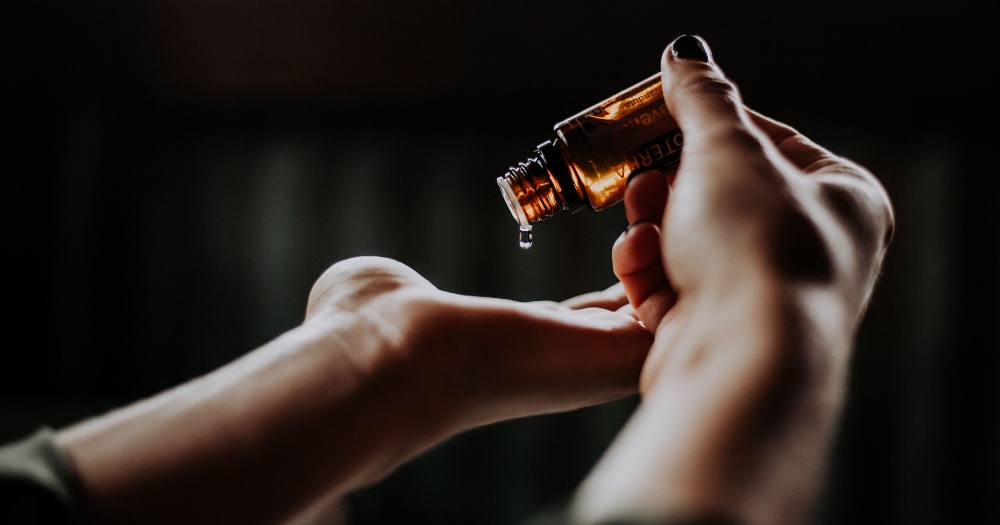There have been various well-intentioned articles and posts circulating online about how one can make their own DIY hand sanitisers to guard against the novel coronavirus (Covid-19).
However, these articles often feature recipes from unverified sources, as well as many inaccuracies.
If you've been thinking about making your own DIY hand sanitiser, here are several reasons why you shouldn't.
Co-founder of local skincare business shares advisory
On Jan. 29, Hann Chia, co-founder of local skincare business Fawn Labs, took to Facebook to share an advisory on the correct ingredients that should be used in making hand sanitisers.
In addition, she also provided facts about hand sanitisers and debunked certain myths surrounding their formulation.
Here's what she said:
Many people do not use the proper ingredients
According to Chia, the proper ingredients one should use to make hand sanitisers are:
- Distilled/purified water
- Solubiliser – ingredient that allows dispersion of oil in water evenly
- Xanthan Gum
- Preservative
- Isoprophyl Alcohol or Ethyl Alcohol
Solubilisers and preservatives, especially, are necessary to ensure effective formulations.
Making a hand sanitiser without these two ingredients may "create worse and serious health issues, passing on viruses, germs, bacteria unknowingly," Chia adds.
Some incorrect ingredients that people are being advised to use in their DIY formulations include Vitamin E, rosemary CO2, and essential oils.
These ingredients are not preservatives, which are required "to kill any contaminants in the form of virus, bacteria, germs mould and parasites."
In the event one still intends to use essential oils in their hand sanitisers, they also need to be paired with solubilisers.
This is because solubilisers help to disperse the essential oils properly, lest they "end up floating on top or clustered and concentrated in a small percentage of the entire product."
According to Chia, the hand sanitiser would be rendered "completely ineffective" if the essential oils are unevenly spread.
In addition, spraying a concentrated amount of essential oil without any dermal limits on the skin may cause it to have an adverse reaction.
Chia added that witch hazel, epsom salts and common alcohols are not solubilisers and "do nothing to disperse oil evenly in a water-based formulation."
Bacteria and germs can breed easily if hand sanitiser is contaminated
Secondly, bacteria and germs can breed easily if one's hand sanitiser is contaminated.
Speaking to Mothership, Chia pointed out that many people do not have the right equipment or safety measures to ensure that the hand sanitisers they make are contamination-free.
In the event a sick person contaminates a DIY hand sanitiser, which contains no preservatives, he or she will be passing the virus around via the hand sanitiser.
Alcohols only work in certain percentages against viruses
Thirdly, some people might think that alcohols such as isoprophyl alcohol or ethyl alcohol are effective against viruses.
However, using them in percentages that are too low will render the hand sanitiser ineffective.
Conversely, the alcohol may cause dryness and irritation to the skin if incorporated excessively, or if not formulated with the right ingredients to protect and moisturise one's hands.
These alcohols are also highly flammable and are a safety hazard if not used properly.
Ingredients to formulate hand sanitisers are not readily available
Finally, even if one does manage to obtain the right formulation to make a DIY hand sanitiser, they may not have access to the necessary ingredients.
For instance, it would be very difficult for a member of the public to purchase the right percentage of ethanol, hydrogen peroxide, glycerol or sterile distilled water off the shelf.
According to the World Health Organisation (WHO), these are just some of the ingredients needed to formulate one's own hand sanitiser.
What one should do instead
Instead of making your own hand sanitiser, it would be more effective to wash your hands thoroughly with soap and water.
If that option is unavailable, Chia advises sticking to professionally-made hand sanitisers from stores or supermarkets.
Fawn Labs does not sell hand sanitisers.
Her full post here:
Top Image via Christin Hume on UnsplashIf you like what you read, follow us on Facebook, Instagram, Twitter and Telegram to get the latest updates.
